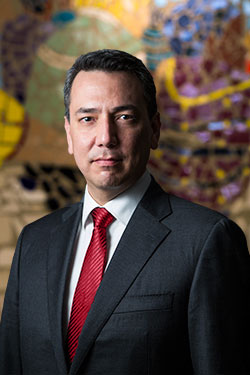The stories of immigrants and refugees reflect resilience and sacrifice. As global conflicts force an increase in the numbers of peoples seeking refuge, social workers must respond with support that recognizes the unique experiences of the immigrant and refugee. 
A new text, “Immigrant and Refugee Children and Families, Culturally Responsive Practice,” details the critical issues facing these populations and the ways future social workers can respond to the challenges. The book is edited by Alan Dettlaff, dean and Maconda Brown O’Connor Endowed Dean’s Chair of the University of Houston Graduate College of Social Work and Rowena Fong, professor at The University of Texas at Austin.
“Children in immigrant families represent the fastest growing population in the United States,” Dettlaff said. “This book provides new knowledge and strategies to build the capacity of systems serving children and families to address their unique needs.”
Published by Columbia University Press, the new offering gathers public policy and social work researchers, along with other advocates from around the country, to examine immigrant and refugee populations and the responses from available social service systems, such as juvenile justice, child welfare, education and mental health systems. The book also addresses federal policy and advocacy efforts for immigrants and refugees, while predicting future needs and responses. 
The book is designed for students studying social work, public policy, ethnic studies and migration populations. It includes examinations about the unique cultural challenges of Latino, South Asian, Asian/Pacific Islander, African and Middle Eastern immigrant and refugee populations.
“Given the rapidly changing demographics in the United States, it is critical that ‘helping professionals’ have the knowledge and skills necessary to provide culturally responsive services to all children and families to ensure positive health and well-being outcomes,” he said. “We’ve assembled leading experts from across disciplines to identify specific strategies that can be used to facilitate positive outcomes for vulnerable children in immigrant and refugee families.”